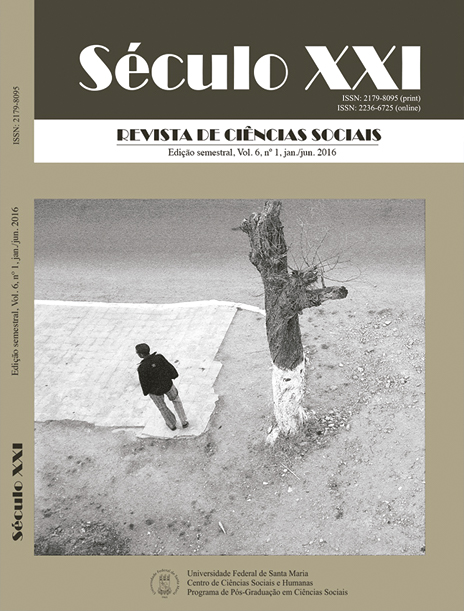Violence against women in Brazil and Uruguay: the experiences of the Maria da Penha Law and Domestic Violence Law
DOI:
https://doi.org/10.5902/2236672525580Keywords:
Violence against women, Maria da Penha Law, Domestic Violence Law, Mapping Violence, Legal Sociology.Abstract
This work results from a sociological study of the marital situations violence against women. The theoretical and methodological approach is guided by the perspective of legal sociology. The objective was to conduct a study on the changes implemented by the laws of existing violence against women in Brazil and Uruguay in its successful applications in marital relations. We selected three regions of Rio Grande do Sul (north, center and border) and a Uruguayan town on the border with Brazil, which examined data for the years 2005-2009, from collection in police stations of Rio Grande do South and information on violence in Uruguay. It was observed that domestic violence is present in the daily lives of women in these regions, regardless of their socio-economic and cultural contexts. Despite the advances, laws to protect women are limited, especially with regard to the protection and prevention of this form of violence.Downloads
Downloads
Published
How to Cite
Issue
Section
License
Authors who publish in this journal agree with the following terms:
1. Authors keep the copyrights and allow the journal the right of first publishing, having the paper simultaneously licensed by Creative Commons Attribution License that allows the sharing of the article – copyright recognized - and first publishing in this journal.
2. The journal is allowed to require the copyrights transfer, allowing the article to be used under noncommercial purposes, including the right to send the paper to Free Access or Paid databanks, not assuming the obligation to pass on the value charged from users to the authors.
3. Authors are allowed to take additional contracts separately for nonexclusive distribution of the paper’s version published in this journal (e.g. publishing in institutional repository or as book chapter), recognizing the copyright and first publishing in this journal.







